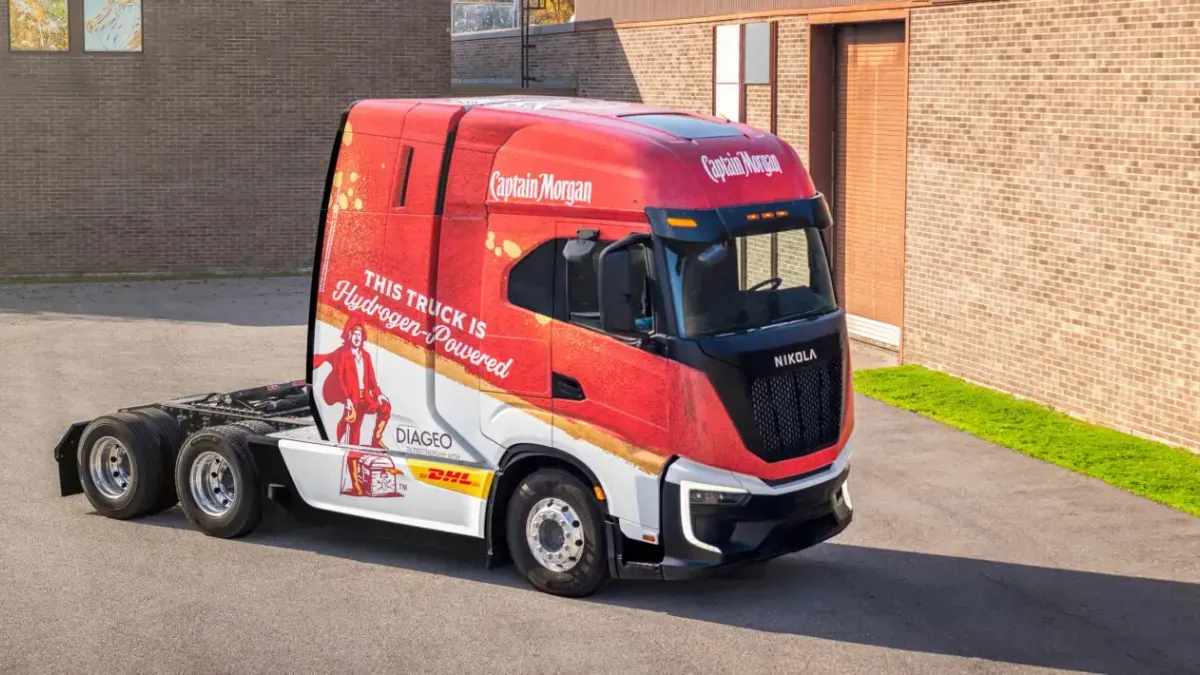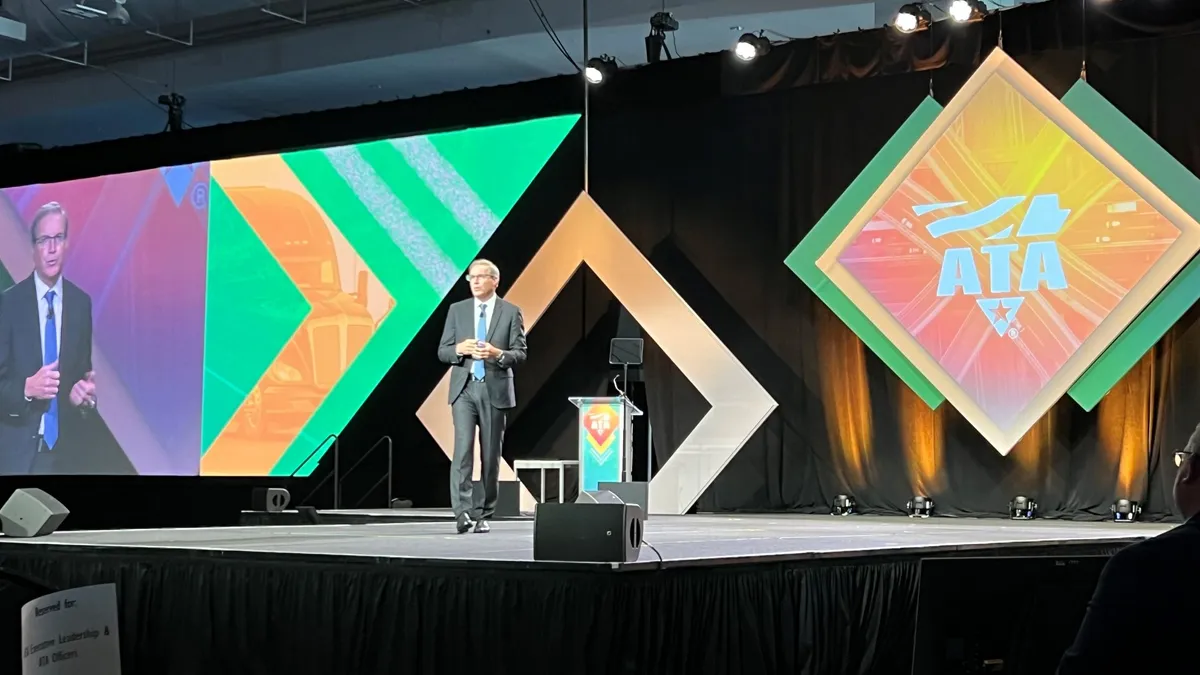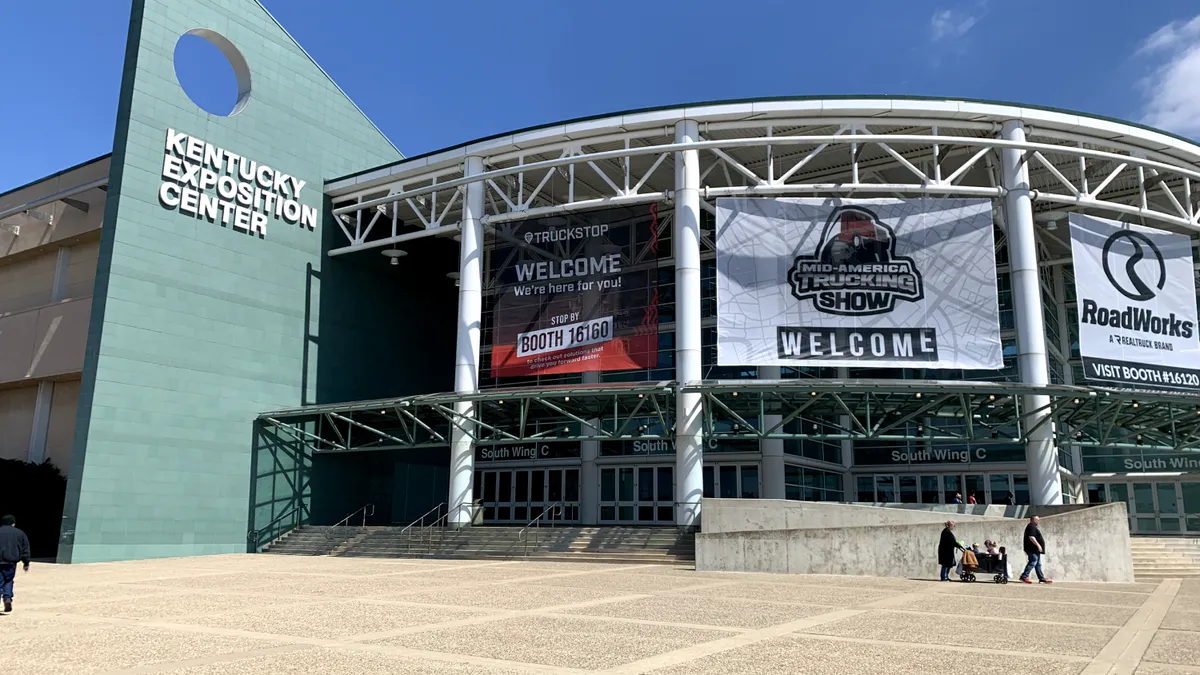Nikola’s electric and hydrogen-powered trucks are leading the North American market, the company said on a Q3 earnings call last month.
“We continue to dominate the heavy-duty fuel cell electric vehicle market in North America with over 90% share based on the most recent bulk registration data,” President and CEO Steve Girsky told investors.
The company shipped 203 trucks during the first three quarters of 2024, up from 79 year over year, according to an earnings release.
DHL Supply Chain and alcoholic beverage distributor Diageo North America are part of the truck maker’s customer mix this year. A spokesperson said the two companies plan to add two Nikola fuel cell electric trucks to the DHL/Diageo fleet by the end of this year.
“These are the first Class 8 Hydrogen Fuel Cell Electric Vehicles for DHL in North America,” Stephan Schablinski, VP of GoGreen in North America for DHL Supply Chain, said in an email.
DHL and Diageo each plan to reduce their supply chains’ environmental impact further, with Diageo seeking to achieve zero emissions by 2030 and DHL by 2050. The companies will evaluate how these new trucks’ performance to help understand how to scale the technology.
“Replacing two diesel trucks with fuel cell electric vehicles is expected to reduce 80% carbon emissions over the course of a year,” the companies said in an announcement.
The trucks can operate for up to 500 miles on a single charge, according to the announcement. The hydrogen-powered truck will operate within Illinois, moving between supplier and customer facilities, Schablinski added.
DHL and Diageo make up just a portion of the companies who have added or reupped Nikola assets.
“We have 32 distinct end fleets and growing that have deployed our trucks, and there's a market for Class 8 zero emission trucks” Girsky said. “So, we are looking to build the coalition of the willing, coalition of like-minded companies that want to pursue and push zero-emission forward because that's all we do.”
The company’s current progress comes after a recall last year that initially affected over 200 of its electric trucks due to a battery pack fire concern. The incident halted production temporarily in the second half of 2023, but it also came with upgrades to the trucks, called BEV 2.0, such as a new driver assistance system to better manage the powertrain.
Production resumed in Q1 2024, and the company has repaired 78 of the affected trucks, Girsky said last month. Moving past the setback, the company plans to utilize its streamlined assembly line.
“We've always harped on with one truck platform, two powertrain options, all zero mission,” Girsky said. “But up ’til now, we've really only had one or the other in the market, either the BEV or the fuel cell. As we move into next year, we will actually have the ability to offer both in the market.”













